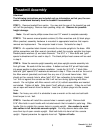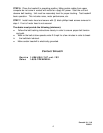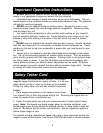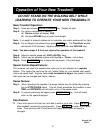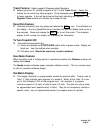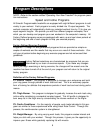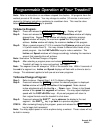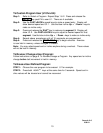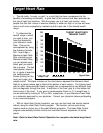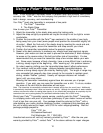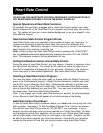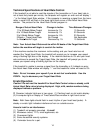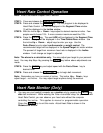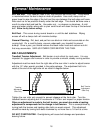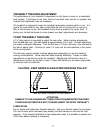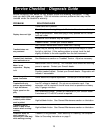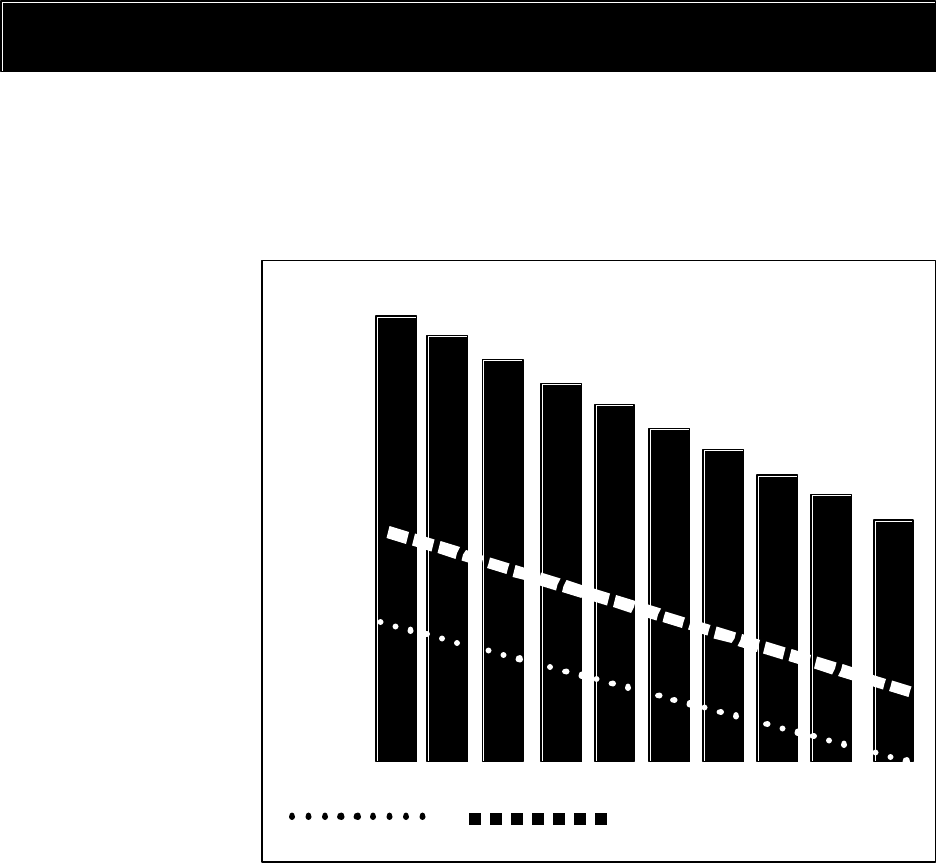
TARGET HEART RATE
TRAINING CHART
20 25 30 35 40 65 45 60 50 55
100
110
140
120
130
150
160
170
180
190
200
Age of User
Heart Rate (Beats per Minute)
Maximum Heart Rate
CardiovascularWeight Loss
T
Target Heart Rate
l
The old motto, “no pain, no gain”, is a myth that has been overpowered by the
benefits of exercising comfortably. A great deal of this success has been promoted by
the use of heart rate monitors. With the proper use of a heart rate monitor, many
people find that their choice of exercise intensity is either too high or too low and exer-
cise is much more enjoyable by maintaining their heart rate in the desired benefit
range.
l
To determine the
benefit range in which
you wish to train, you
must first determine
your Maximum Heart
Rate. This can be
accomplished by using
the following formula:
220 - User’s Age =
Maximum Heart Rate.
After calculating your
Maximum Heart Rate,
you can decide upon
which goal you would
like to pursue. The two
most popular reasons
for, or goals of exercise,
are cardiovascular
fitness (training for the
heart and lungs) and
weight control. The black columns on the chart above represent the Maximum Heart
Rate for a person whose age is listed at the bottom of each column. The training heart
rate for either cardiovascular fitness or weight loss is represented by two different lines
that cut diagonally through the chart. A definition of the lines’ goal is in the bottom left-
hand corner of the chart. If your goal is cardiovascular fitness or if it is weight loss, it
can be achieved by training at 75% or 65%, respectively, of your Maximum Heart Rate
on a schedule approved by your physician. Consult your physician before participating
in any exercise program.
l
With all Heart Rate Control treadmills, you may use the heart rate monitor feature
without using the Heart Rate Control program. This function can be used during
manual mode or during any of the eight different programs. The Heart Rate Control
program automatically controls incline and overrides manual adjustment of incline
grade.
Note: Refer to Heart Rate Control Operation for computer calculated target heart
rate.
11



